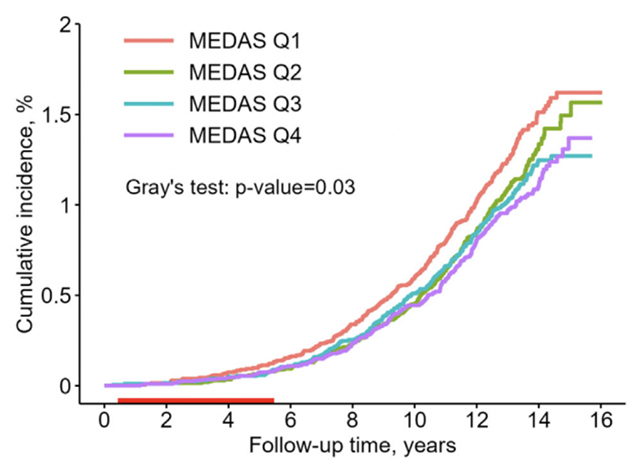Sticking to the Mediterranean diet, rich in plants and nuts and low in meat, could drastically reduce your risk of dementia, according to a new study from researchers at Yonsei University in South Korea.
Scientific studies have long shown how our eating habits can affect our chances of developing dementia. Backing up those previous findings, the new study digs into this association for four specific types of diet across a large sample size, following up with participants for an average of 13.5 years.
While it's not enough to prove direct cause and effect between these diets and dementia risk, this study does show a strong association. Further down the line, that might help us understand how different types of dementia get started, and what steps we could take to slow or prevent it.
"Considering the lack of a definitive cure for dementia, dietary interventions targeting specific food components, overall diet quality, and inflammatory potential offer promising approaches for early prevention," write the researchers in their published paper.
Related: Scientists Say This One Particular Diet May Slow The Decline of The Brain
The researchers looked at 131,209 individuals aged between 40 and 69 in a public health database, scoring their diets against the Mediterranean diet (MEDAS), the Mediterranean-DASH Intervention for Neurodegenerative Delay (MIND) diet, the Recommended Food Score (RFS), and the Alternative Healthy Eating Index (AHEI).
Sticking to any of these four healthy diets was linked to a notable drop in dementia risk – between 21 and 28 percent. RFS adherents showed the best results, followed closely by the MIND diet.
Inversely, participants' diets were also scored against another metric, the Energy-adjusted Dietary Inflammatory Index (EDII). Higher EDII scores, which indicate pro-inflammatory diets, were linked to a 30 percent increase in dementia risk.

The healthy diets all focus on whole grains, fruits, vegetables, fish, nuts, and poultry. Fried foods, dairy, and meat are discouraged. It's thought that this helps reduce stress inside the body and thus protect the brain from harm.
"The associations between dietary patterns and dementia were stronger in older adults and women and varied between the obese and non-obese groups, highlighting the differential impact of dietary patterns across subgroups," write the researchers.
"Our findings underscore the potential of dietary interventions as modifiable factors to reduce the risk of dementia, particularly in vulnerable populations."
Despite plenty of progress in our understanding of dementia in recent years, we're still not sure of its precise causes – though we know that diet, genetics, physical exercise, and sleep all play a role.
With so many factors involved, figuring out how conditions such as Alzheimer's disease develop in some people and not others isn't easy. However, each of these studies helps put together a full picture, as well as suggesting practical ways in which we might help reduce our own personal risk.
"Our study effectively addresses several limitations of previous studies on diet and dementia," write the researchers.
"Many earlier studies relied on a single dietary scoring system without comparing multiple dietary patterns, or had relatively short follow-up periods, limiting their ability to assess long-term effects."
The research has been published in the Journal of Nutrition, Health and Aging.
